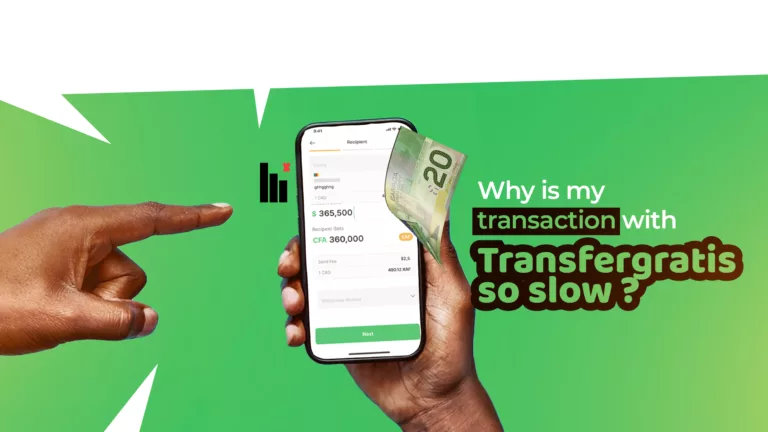Africa – The Ripple Effect on African Economies and the Stabilizing Role of Fintech
As geopolitical tensions between Israel and Iran capture global attention, their economic repercussions extend far beyond the Middle East, directly impacting economies in Africa. This confrontation, often waged through proxies, triggers a cascade of effects on global finance, currency volatility, and the purchasing power of millions of African citizens. In this uncertain context, financial technology (fintech) platforms like TRANSFERGRATIS, specializing in money transfers from Canada to Africa, are emerging as unexpected but crucial tools for economic resilience.
The Domino Effect: How a Distant Conflict Devastates African Trade Balances
The link between the Israel-Iran conflict and the African economy can be broken down into three main transmission channels:
Surging Oil Prices: Imported Inflation
The first and most immediate impact is the volatility of crude oil prices. The Strait of Hormuz, a critical choke point for nearly a third of the world’s seaborne oil, is at the heart of these tensions. Any threat of blockade or instability in this area causes Brent and WTI crude prices to soar.
For most non-oil-producing African countries, this translates into a drastic increase in their energy bill. This rise impacts transport and production costs and, ultimately, consumer prices. The result is rampant imported inflation that erodes household purchasing power and puts pressure on central banks’ foreign exchange reserves, as they must dip into their dollar holdings to pay for imports. For oil-producing countries like Nigeria or Angola, the increased oil windfall is often offset by macroeconomic instability and domestic inflation.
Supply Chain Disruptions and Risk Aversion
The fear of escalating conflict affects global shipping routes, particularly in the Red Sea and the Gulf of Aden. Attacks on commercial vessels force shippers to take longer, more expensive routes, bypassing Africa. This leads to delivery delays and increased freight costs for all goods, from food to capital equipment.
At the same time, an increased geopolitical risk climate pushes international investors toward safe-haven assets, primarily the US dollar (USD). This phenomenon, known as “risk-off,” leads to capital flight from emerging markets, including those in Africa. Foreign Direct Investments (FDIs) become scarcer, and local currencies (such as the Nigerian Naira, the Kenyan Shilling, or the Ghanaian Cedi) experience sharp depreciation against the dollar. This devaluation makes the repayment of sovereign debt, often denominated in dollars, even more burdensome.
Currency Pressure and Monetary Policy
Faced with currency depreciation, African central banks are caught in a trap. To defend the exchange rate, they may be forced to raise their benchmark interest rates. However, such a measure curbs local investment, slows GDP growth, and increases the cost of credit for businesses and individuals, creating a vicious cycle of economic stagnation.
TRANSFERGRATIS: A Financial Lifeline for African Households
It’s within this challenging macroeconomic context that diaspora remittances play a vital microeconomic stabilizing role. A platform like TRANSFERGRATIS becomes more than just a money transfer service; it transforms into a conduit of resilience.
Injection of Hard Currency and Volatility Bypass
When a diaspora member sends Canadian Dollars (CAD) via TRANSFERGRATIS to a country like Cameroon, Senegal, or Côte d’Ivoire, they inject hard currency directly into the local economy. For the receiving family, this money is direct protection against the depreciation of the local currency. Their purchasing power is preserved, or even increased, allowing them to cope with inflation on essential goods. Unlike traditional banking systems with high fees and often unfavorable exchange rates, fintech optimizes these transfers to maximize the value received.
Support for Micro-economy and Financial Inclusion
These funds are not just for consumption. They fuel the micro-economy: paying school fees, financing healthcare, or providing start-up capital for small businesses. In times of crisis, when access to bank credit tightens, these remittances become an essential source of liquidity that supports the informal economy and micro-entrepreneurship. TRANSFERGRATIS, by facilitating fast, secure, and low-cost transfers, thus promotes financial inclusion and economic autonomy at the most fundamental level.
A Private and Effective Safety Net
While African governments grapple with tight budgets and rising debt, diaspora remittances act as a private social safety net, more agile and direct than international aid. By ensuring that these vital financial flows reach their destination with minimal friction, TRANSFERGRATIS and similar platforms play a strategic role. They strengthen households’ ability to absorb external economic shocks, whether from a conflict thousands of miles away or its direct consequences on the local market.
While the conflict between Israel and Iran casts a threatening shadow over Africa’s economic stability, it also highlights the growing importance of financial solidarity from the diaspora. In this new era of global finance, technological solutions like TRANSFERGRATIS are not mere conveniences; they are critical infrastructures that provide stability, liquidity, and hope, transforming diaspora capital into a powerful lever for development and resilience in an increasingly uncertain world.
Try Transfergratis today and optimize your international financial flows! The Transfergratis platform is a free, fast, and secure money transfer service from Canada to Africa. Download the app on the Play Store or the App Store.








